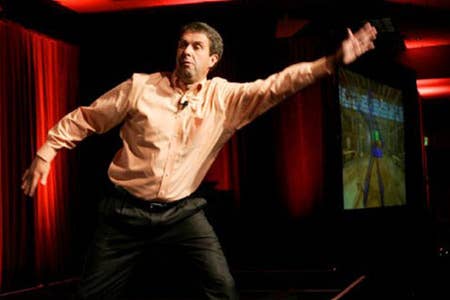Robbie Bach puts Xbox success down to Sony's mistakes
Former Xbox exec attributes part of console's current standing to "really, really bad" transition to PlayStation 3
Former Xbox executive Robbie Bach attributes some of the Xbox 360's success to a series of "not so smart" decisions on the part of its main console rival, Sony.
Speaking at the Northwest Entrepreneur Network - as reported by GeekWire - Bach detailed some of the key decisions that helped secure a place for the Xbox in the console market. However, a number of key factors had nothing to do with Microsoft at all.
"[Sony] mismanaged [its] 70 per cent market share," Bach said. "The transition to PlayStation 3 was really, really bad. And really hard. They mismanaged their partners, they mismanaged their cost structure. They made their next platform so complicated that developers couldn't develop for it."
Bach presided over Microsoft's Entertainment and Devices division for much of the Xbox era. During his tenure the console raced ahead of Sony's PlayStation, and Bach emphasised the importance of strong relationships with partners to achieving that goal.
"You need friends. It's just the way life works," he continued. "It turned out we were able to convince retailers and publishers like Activision, Electronic Arts and others, that it was a good thing for Microsoft to be successful, because if we were not successful, the only game in town was Sony.
"Being dependent on somebody else was bad for them, and so they supported us disproportionately to what they should have, mathematically."
Bach left Microsoft in May 2010 to concentrate on non-profit work. He was replaced as president of Entertainment and Devices by Don Mattrick.









